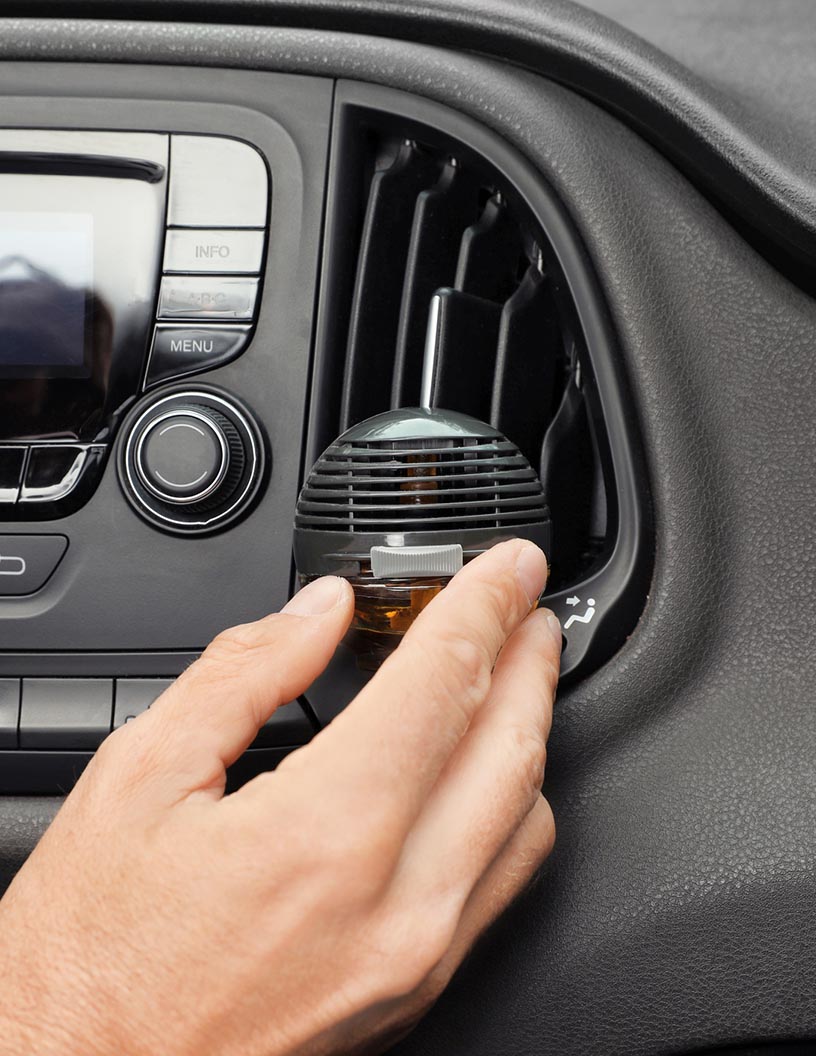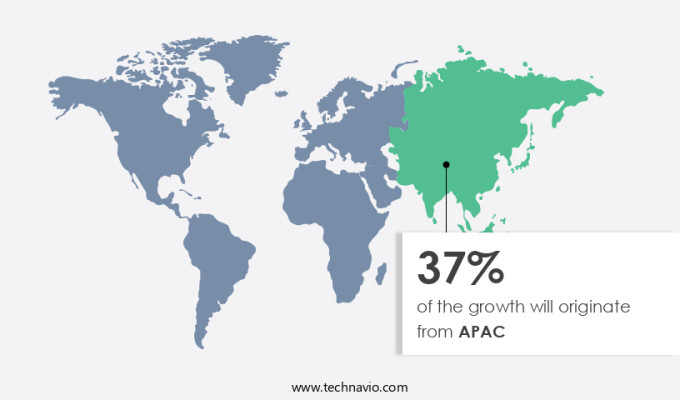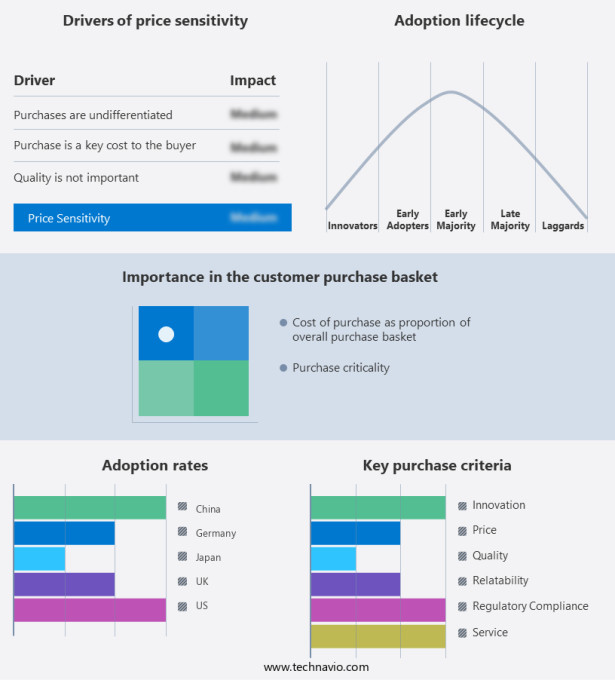Car Air Purifier Market Size 2024-2028
The car air purifier market size is forecast to increase by USD 1.05 billion at a CAGR of 8.99% between 2023 and 2028. The market is experiencing significant growth, driven by the increasing demand for advanced air filtration systems. One key trend is the innovation in technology leading to the production of premium multifunctional car air purifiers. These devices offer features beyond basic air filtration, such as the use of soda ash in the filter to neutralize odors, or the integration of the Solvay process to absorb carbon dioxide emissions. Additionally, consumers' heightened awareness of sustainability is driving the demand for eco-friendly production methods in the glass manufacturing, pulp and paper, and chemical industries. Despite the high price sensitivity of consumers, the market is expected to continue its growth trajectory, with detergents and cleaning products companies also entering the market to cater to the increasing demand for cleaner and healthier car interiors.
The market is witnessing significant growth due to increasing health consciousness among consumers and stringent regulatory standards. With the rise in air pollution levels and the prevalence of allergens, dust, bacteria, and odors in vehicles, automakers and automotive suppliers are integrating advanced technologies into their offerings to ensure customer satisfaction. Air pollution is a major concern for vehicle occupants, particularly in urban areas. According to the American Lung Association, vehicle cabin air can be up to five times more polluted than outdoor air. This has led to a growing demand for car air purifiers that utilize technologies such as ionizers, activated carbon, and ionic fiber to filter out pollutants and improve indoor air quality.
Also, automakers are recognizing the importance of providing a clean and healthy cabin environment, especially in electric and hybrid vehicles where quieter cabins are becoming increasingly popular. These vehicles often have more sealed systems, which can lead to a build-up of pollutants and allergens. By integrating air purifiers into their vehicles, automakers can differentiate themselves in the market and enhance the overall driving experience. Regulatory standards also play a crucial role in the growth of the market. Governments worldwide are implementing stricter regulations on vehicle emissions, which is driving automakers to focus on improving indoor air quality. For instance, the European Union's Regulation (EU) 2016/1628 sets limits on the amount of fine particulate matter (PM) that can be emitted by vehicles.
Moreover, the aftermarket for car air purifiers is also thriving, with consumers seeking affordable solutions to improve their vehicle's indoor air quality. Aftermarket suppliers are offering a range of products to cater to this demand, from portable air purifiers to permanently installed systems. In conclusion, the market is experiencing steady growth due to increasing health consciousness, stringent regulatory standards, and the need to improve indoor air quality in vehicles. Technologies such as ionizers, activated carbon, and ionic fiber are gaining popularity for their effectiveness in filtering out pollutants and allergens. Automakers and aftermarket suppliers are responding to this trend by integrating car air purifiers into their offerings to enhance the driving experience and differentiate themselves in the market.
Market Segmentation
The market research report provides comprehensive data (region-wise segment analysis), with forecasts and estimates in "USD billion" for the period 2024-2028, as well as historical data from 2018-2022 for the following segments.
- Product
- Counter-up
- Built-in
- Technology
- HEPA filters
- Ionizers and ozone generators
- Others
- Geography
- Europe
- Germany
- UK
- APAC
- China
- Japan
- North America
- US
- South America
- Middle East and Africa
- Europe
By Product Insights
The counter-up segment is estimated to witness significant growth during the forecast period.Car air purifiers installed atop the dashboard are commonly referred to as countertop models. These devices are easily removable and come with refill packages, allowing users to switch between various fragrances. They can also be attached to car vents for optimal air filtration. The popularity of countertop car air purifiers lies in their convenience and customizability. In the context of passenger experience and safety, these purifiers contribute significantly during commutes and travel. As regulatory standards continue to prioritize environmental requirements, automakers are increasingly integrating air filtration systems into their vehicles. However, countertop air purifiers offer a more flexible solution for individuals seeking to enhance their cabin air quality.
Get a glance at the market share of various segments Request Free Sample
The counter-up segment was valued at USD 1.37 billion in 2018 and showed a gradual increase during the forecast period. Additionally, customer satisfaction is a key consideration for both automakers and consumers. Countertop car air purifiers cater to this need by providing an additional layer of air filtration and fragrance customization. By offering a variety of designs and scents, these devices add a personal touch to the driving experience. Overall, the use of countertop car air purifiers is an effective strategy for improving overall air quality and enhancing passenger comfort.
Regional Insights
APAC is estimated to contribute 37% to the growth of the global market during the forecast period. Technavio's analysts have elaborately explained the regional trends and drivers that shape the market during the forecast period.
For more insights on the market share of various regions Request Free Sample
The European market is set to dominate the global car air purifier industry due to the high number of privately owned vehicles. This trend is attributed to the increasing concern for personal health and well-being, leading to a significant demand for car air purifiers in the region. According to recent studies, Europe accounted for approximately 40% of the global market revenue in 2020. Major contributors to this market share include countries like Germany, France, and the UK. The growth of the European market can be attributed to the rising pollution levels and stringent environmental regulations. With increasing urbanization and emission standards, there is a growing need for advanced technologies such as ionizers and UV-C technology to combat airborne contaminants and harmful gases in vehicles. This demand is expected to continue driving market growth during the forecast period.
Our researchers analyzed the data with 2023 as the base year, along with the key drivers, trends, and challenges. A holistic analysis of drivers will help companies refine their marketing strategies to gain a competitive advantage.
Market Driver
The technology innovation leading to product premiumization is the key driver of the market. The market is experiencing significant growth due to advancements in air purification technologies. Companies in this sector are prioritizing the integration of cutting-edge technologies into their car air purifier offerings, moving beyond traditional models. Three primary technologies dominate the market: HEPA, active carbon systems, and photocatalytic. Consumers are increasingly knowledgeable about these technologies, leading to increased demand for innovative and improved operational features.
For instance, HEPA technology, which utilizes High-Efficiency Particulate Air filters, effectively eliminates pollen, dust, and other airborne particles. Hybrid types, which combine HEPA technology with ultraviolet light, offer additional benefits, such as neutralizing viruses and bacteria using Lumileds' sodium carbonate. The continuous pursuit of advanced air purification solutions is driving the market's sustainable growth.
Market Trends
The growth in multifunctional car air purifier is the upcoming trend in the market. In the automotive industry, there is a growing demand for energy-efficient and eco-friendly car accessories. One such product gaining popularity is the car air purifier. These devices offer more than just air conditioning and circulation; they also function as dehumidifiers and air filtration systems. Leading companies in the market are focusing on innovation, integrating fragrance dispensers into their car air purifiers.
By investing in research and development, these companies are creating advanced products that not only purify the air but also infuse it with desirable fragrances. The multi-functionality of car air purifiers enhances the overall in-car experience, making it a must-have accessory for consumers prioritizing indoor air quality and comfort. The market for car air purifiers in the US is expected to grow significantly, driven by increasing consumer awareness and the availability of energy-efficient, green chemistry techniques.
Market Challenge
The high price sensitivity of consumers is a key challenge affecting market growth. The market faces price sensitivity among consumers, particularly in developing countries such as India, China, Brazil, Argentina, Egypt, and South Africa. Price consciousness is a significant challenge for companies in these regions, as consumers prefer affordability over premium and advanced products. Air purifiers hold a low purchase priority for consumers, leading to high price sensitivity and limited buying motivation. Consequently, the adoption of car air purifiers is less prevalent in these developing economies compared to established markets in Germany, the US, France, Japan, the UK, and Canada.
However, the chemical industry, including soda ash in glass manufacturing, detergents, and cleaning products, as well as pulp and paper, contributes to carbon dioxide emissions. companies in the market are focusing on sustainable production methods and implementing the Solvay process to reduce their carbon footprint. By addressing price sensitivity and environmental concerns, the market can expand its reach and grow in these developing economies.
Exclusive Customer Landscape
The market forecasting report includes the adoption lifecycle of the market, covering from the innovator's stage to the laggard's stage. It focuses on adoption rates in different regions based on penetration. Furthermore, the report also includes key purchase criteria and drivers of price sensitivity to help companies evaluate and develop their market growth analysis strategies.
Customer Landscape
Key Companies & Market Insights
Companies are implementing various strategies, such as strategic alliances, partnerships, mergers and acquisitions, geographical expansion, and product/service launches, to enhance their presence in the market.
Unilever PLC - The company offers car air purifiers through its subsidiary Blueair.
The market research and growth report includes detailed analyses of the competitive landscape of the market and information about key companies, including:
- 3M Co.
- Airthereal.com
- Coway
- DENSO Corp.
- Eureka Forbes Ltd.
- Filtration Group Corp.
- Guangzhou Ionkini Technology Co. Ltd.
- Honeywell International Inc.
- KENT RO Systems Ltd.
- Koninklijke Philips N.V.
- Newell Brands Inc.
- Panasonic Holdings Corp.
- Power4 Industries Ltd.
- Qubo
- SAR Group
- Sharp Corp.
- Shenzhen Agcen Environmental Protection Technology Co. Ltd.
- Xiamen Airbus Electronic Technology Co. Ltd.
- Xiaomi Communications Co. Ltd.
Qualitative and quantitative analysis of companies has been conducted to help clients understand the wider business environment as well as the strengths and weaknesses of key market players. Data is qualitatively analyzed to categorize companies as pure play, category-focused, industry-focused, and diversified; it is quantitatively analyzed to categorize companies as dominant, leading, strong, tentative, and weak.
Research Analyst Overview
The market is witnessing significant growth due to the increasing health consciousness among consumers and the rising levels of air pollution. Vehicles are known to harbor various pollutants such as dust, allergens, bacteria, odors, and harmful gases, which can negatively impact the health of passengers during commutes and travel. Advanced technologies like HEPA filters, ionizers, and UV-C technology are being integrated into car air purifiers to combat these airborne contaminants. Automakers and automotive suppliers are focusing on enhancing the passenger experience by providing cleaner and safer cabin environments. Regulatory standards and environmental requirements are also driving the adoption of air purification technologies in vehicles.
In summary, the market is witnessing a growth in demand for standalone purifiers as well as integrated OEM solutions. Electric vehicles and hybrid vehicles are also adopting air purification technologies to offer quieter cabins and improve customer satisfaction. The market offers various product options, including HEPA type and hybrid type air purifiers, to cater to diverse customer needs. Smart connectivity features and purification technologies like activated carbon filters, ionizers, and UV-C technology are gaining popularity due to their efficiency and sustainability. The market is expected to exhibit a sustainable CAGR, driven by the increasing awareness of health concerns and the need for energy-efficient and eco-friendly solutions. The market is also witnessing the adoption of green chemistry techniques and the Solvay process to reduce carbon dioxide emissions and promote sustainable production in the automotive industry.
|
Market Scope |
|
|
Report Coverage |
Details |
|
Page number |
175 |
|
Base year |
2023 |
|
Historic period |
2018-2022 |
|
Forecast period |
2024-2028 |
|
Growth momentum & CAGR |
Accelerate at a CAGR of 8.99% |
|
Market growth 2024-2028 |
USD 1.05 billion |
|
Market structure |
Fragmented |
|
YoY growth 2023-2024(%) |
8.05 |
|
Regional analysis |
Europe, APAC, North America, South America, and Middle East and Africa |
|
Performing market contribution |
APAC at 37% |
|
Key countries |
China, US, Germany, Japan, and UK |
|
Competitive landscape |
Leading Companies, Market Positioning of Companies, Competitive Strategies, and Industry Risks |
|
Key companies profiled |
3M Co., Airthereal.com, Coway, DENSO Corp., Eureka Forbes Ltd., Filtration Group Corp., Guangzhou Ionkini Technology Co. Ltd., Honeywell International Inc., KENT RO Systems Ltd., Koninklijke Philips N.V., Newell Brands Inc., Panasonic Holdings Corp., Power4 Industries Ltd., Qubo, SAR Group, Sharp Corp., Shenzhen Agcen Environmental Protection Technology Co. Ltd., Unilever PLC, Xiamen Airbus Electronic Technology Co. Ltd., and Xiaomi Communications Co. Ltd. |
|
Market dynamics |
Parent market analysis, market growth inducers and obstacles, market forecast, fast-growing and slow-growing segment analysis, COVID-19 impact and recovery analysis and future consumer dynamics, market condition analysis for the forecast period |
|
Customization purview |
If our market report has not included the data that you are looking for, you can reach out to our analysts and get segments customized. |
What are the Key Data Covered in this Market Research and Growth Report?
- CAGR of the market during the forecast period
- Detailed information on factors that will drive the market growth and forecasting between 2024 and 2028
- Precise estimation of the size of the market and its contribution of the market in focus to the parent market
- Accurate predictions about upcoming market growth and trends and changes in consumer behaviour
- Growth of the market across Europe, APAC, North America, South America, and Middle East and Africa
- Thorough analysis of the market's competitive landscape and detailed information about companies
- Comprehensive analysis of factors that will challenge the growth of market companies
We can help! Our analysts can customize this market research report to meet your requirements. Get in touch




